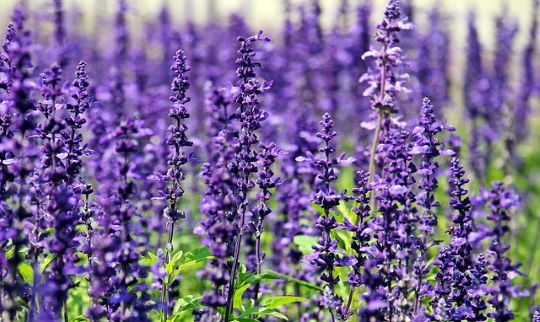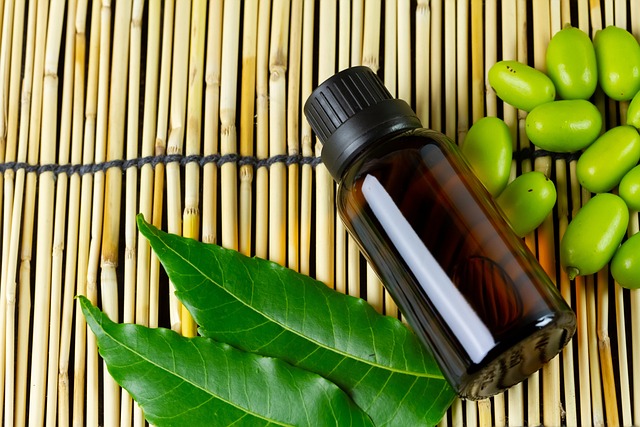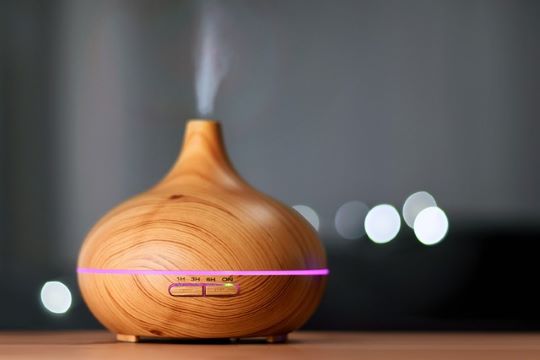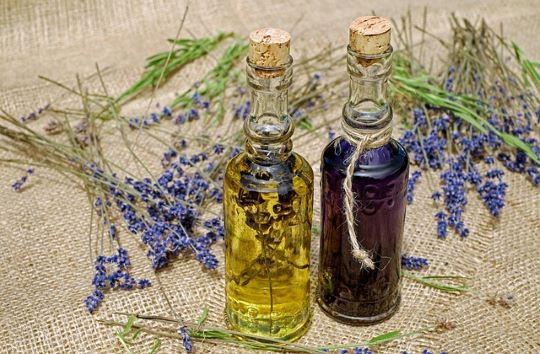Introduction
Lavender is a flowering plant from the Mint family, native to the Mediterranean region, Africa and parts of Asia. It blooms in shades of purple, white, pink and blue with fragrant flowers and leaves that have been used for centuries for their medicinal properties. The essential oils from lavender are among the most popular essential oils used today. Lavender is my favorite essential oil. I find it calming for my mind, soul and skin. This article discussed the medicinal properties of Lavender.

History of Lavender’s Medicinal Use
Lavender has been used for centuries as a remedy for various ailments and conditions, including headaches, digestive problems, insomnia, anxiety and depression. It has also been known to help with skin conditions such as acne, rashes and psoriasis.
Dioscorides, a Greek physician for the Roman army, stated that lavender had medicinal benefits such as relieving indigestion, sore throats, headaches, and healing wounds when used externally. The Romans named the plant “lavender” after its use in their bathing rituals, as they found it to be not only relaxing but also antiseptic.
John Parkinson, an English herbalist from the 16th century, recommended using lavender for alleviating head and brain-related discomfort. Similarly, Charles VI of France preferred sleeping on lavender-filled pillows to ensure a sound sleep. Even today, people continue to use lavender in pillows for its soothing properties.
Lavender has been used for its calming properties in Asian traditional medicine. It helps to cool the heart and ease tension in the body, providing relief from mental struggles that can cause physical discomfort.
During WWII, doctors used lavender to heal wounds. Lavender gained fame for its skin healing properties when French chemist René-Maurice Gattefossé burned his hand in a laboratory in the 1930s. He applied lavender oil to the burn and it appeared to halt the burn and hasten healing.
Overview of Medicinal Properties of Lavender

The medicinal properties of lavender are attributed to its volatile oils, which are composed mainly of linalool and linalyl acetate. These two components combine to create a calming aroma that is believed to reduce stress and anxiety, while also promoting better sleep. In addition, lavender is also known to have anti-inflammatory, antibacterial and antifungal properties. It has been confirmed by research that the ability of lavender to reduce inflammation is attributed to the essential oil components, polyphenols, and non-volatile terpenoids it contains. I always find it interesting to look up scientific studies that support what our ancestor’s somehow knew intuitively. Lavender actually has measurable components that have had studies supporting their affects. Beyond that there are over 100 individual properties in lavender many of which no one has been able to determine what if anything they do. My suspicion is these components interact together in some synergistic way and may be the reason why microorganisms don’t develop resistance as has happened with the the single isolated ingredient antibiotics for instance.
Antibiotics were and still are one of the great miracles of modern medicine resulting in a great increase in survival rates of many infections, but overuse of antibiotics has resulted in many antibiotic resistant infections we thought were defeated such as TB making an unwelcome comeback. Perhaps all the components pharma decided were not of use as they went about isolating chemical they could patent to sell, really did have a use.
Medicinal Properties of Lavender
The calming aroma of lavender is known to help reduce anxiety and stress, as well as improve sleep. Studies have shown that the scent of lavender can help lower heart rate and reduce blood pressure, making it beneficial for those who suffer from insomnia or are overly stressed. For more on home remedies for sleep check here.
Lavender oil has been used in many cultures around the world to treat headaches, muscle pain, and even menstrual cramps. It is believed that the anti-inflammatory properties of lavender oil can help reduce swelling and inflammation in the body, providing relief from chronic pain.
Lavender has long been used to soothe and heal skin conditions such as eczema, psoriasis, and acne. Applying lavender decoctions and hydrolates as compresses can have a positive impact on the skin. Studies on both animals and humans confirm that lavender infusions and oil inhaled for their sedative and anxiolytic effects. Lavender is a popular aromatic plant that is frequently used in food and cosmetics due to its antibacterial, antifungal, antioxidant, and anti-inflammatory properties. Lavender oil is believed to be an effective antiseptic, making it beneficial for treating wounds and preventing infection. It can also help reduce redness and irritation associated with skin conditions.
Lavender oil is believed to be an effective antiseptic, making it beneficial for treating wounds and preventing infection. It can also help reduce redness and irritation associated with skin conditions. Studies have shown that lavender oil can kill or inhibit the growth of certain bacteria, fungi, and viruses.
It is believed that lavender’s natural sedative properties can help improve sleep quality and duration. In addition, the aroma of lavender is believed to have a calming effect, which can further promote relaxation.
Studies have shown that lavender oil can significantly reduce symptoms of anxiety and depression. The natural aroma of lavender is believed to activate the brain’s limbic system, which regulates emotions.
How to Use Medicinal Properties of Lavender for Health

The most common way to use lavender is through inhalation. This can be done by adding a few drops of lavender essential oil to a diffuser or vaporizer, placing a few drops on a cloth or tissue, or even simply sniffing the bottle directly. For those who don’t have access to these tools, inhaling the scent from an open container of lavender essential oil can be beneficial. I put a few drops on my pillow every night to help with sleep!

Medicinal Properties of Lavender for Skin
Lavender essential oil can also be applied directly to the skin in the form of a diluted solution or ointment. It is important to dilute lavender essential oil with a carrier oil, such as olive or coconut oil, prior to applying it to the skin in order to avoid any potential irritation. Lavender oil can also be applied to the temples, wrists, or behind the ears for quick relief from headaches and stress.
Lavender essential oil is not recommended for oral consumption due to its potent nature and potential side effects. However, there are some herbal supplements that contain lavender extract that can be taken internally. These can come in the form of teas or tinctures, which are concentrated liquid extracts made with alcohol. It is best to consult a qualified health care provider before taking any herbal supplements.
In addition to medicinal uses, lavender has many other practical applications as well. Lavender essential oil can be used as an insect repellent, and the flowers can be dried to make sachets which can be placed in closets or drawers to keep moths away from clothing and fabrics. Lavender essential oil is also commonly used in massage, aromatherapy, and skincare products due to its relaxing effects and refreshing scent.
Safety Considerations when Using Lavender
Although lavender is generally considered safe and has many beneficial applications, it is important to use caution when using essential oil medicinally. Lavender can cause skin irritation in certain individuals, so it is always best to do a patch test before applying the oil directly to the skin. Additionally, lavender should not be taken orally without consulting a healthcare provider first due to potential interactions with medications and other herbs.
Conclusion
Lavender has been used medicinally by our ancestors for millions of years. Of all the herbs lavender is one of the gentlest and tolerated by most people in an herbal tea, tincture or as an essential oil in skin care products.
This article is meant to be informational and entertaining. It is not meant as medical advice. Talk to your health care provider regarding health issues.
For more on the medicinal properties of herbs click here.
For information on the medicinal properties of the following herbs click the name:
References
https://pubmed.ncbi.nlm.nih.gov/32589447/
https://pubmed.ncbi.nlm.nih.gov/31655395/
